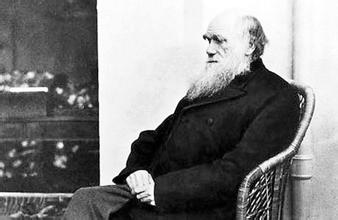Lyell's oversights were not inconsiderable. He failed to explain convincingly how mountain ranges were formed and overlooked glaciers as an agent of change. He refused to accept Louis Agassiz's idea of ice ages—"the refrigeration of the globe," as he dismissively termed it—and was confident that mammals "would be found in the oldest fossiliferous beds." He rejected the notion that animals and plants suffered sudden annihilations, and believed that all the principal animal groups—mammals, reptiles, fish, and so on—had coexisted since the dawn of time. On all of these he would ultimately be proved wrong.
莱尔的失误并不算少。他没有令人信服地解释山脉是怎么形成的,没有看到冰河是个变化的动因。他不愿意接受阿加西斯关于冰期的观点--他轻描淡写地将其称之为"地球制冷"--坚信"在最古老的化石床里会发现"哺乳动物。他拒绝接受关于动物和植物突然死亡的看法,认为所有主要的动物群体--哺乳动物、爬行动物、鱼类等等--自古以来一直同时存在。在这些问题上,最后证明他是完全错误的。

Yet it would be nearly impossible to overstate Lyell's influence. The Principles of Geology went through twelve editions in Lyell's lifetime and contained notions that shaped geological thinking far into the twentieth century. Darwin took a first edition with him on the Beagle voyage and wrote afterward that "the great merit of the Principles was that it altered the whole tone of one's mind, and therefore that, when seeing a thing never seen by Lyell, one yet saw it partially through his eyes." In short, he thought him nearly a god, as did many of his generation. It is a testament to the strength of Lyell's sway that in the 1980s when geologists had to abandon just a part of it to accommodate the impact theory of extinctions, it nearly killed them. But that is another chapter.
然而,莱尔的影响你几乎怎么说也不会过分。《地质学原理》在他生前出了12版;直到20世纪,书里包含的一些观点依然被地质学界奉为圭臬。达尔文乘"猎犬"号环球航行途中还随身带着一本《地质学原理》,而且是该书的第1版。他后来写道:"《原理》的最大优点在于它改变了一个人的整个思想状态;因此,当见到一样莱尔从没有见到过的东西的时候,你在一定程度上是以他的眼光来看的。"总之,他差不多把莱尔看做是个神,就像他那一代人的许多人一样。20世纪80年代,当地质学家不得不摈弃他的一部分理论,以适应关于绝种的撞击理论的时候,他们简直痛苦得要命。这充分说明了莱尔的影响之大。不过,那是后话了。












